 By Susan Hitchcock
By Susan Hitchcock
Host Emerita of Women in Leadership
Ask individuals / professionals at every stage of their career what is one thing that has helped them get where they are. Often the answer is “I’ve had great mentors along the way.” To be clear, mentoring can begin at any age and there are two sides or roles involved, i.e., the “mentor” and “mentee.” Here’s a brief review of the investment and payoff (Return on Investment / ROI) of each of these roles as it relates to leadership.
The Mentor:
I believe one of the most rewarding roles any professional or leader can play is that of a mentor. Mentors often volunteer to engage with individuals or groups of mentees, and these “engagements” can be rather formal or informal. In either case, the mentor typically has something in common with the mentee, e.g., similar interests, areas of focus or experience, etc. But perhaps the most important aspect of mentoring is a mutually respectful relationship in which the mentor shares his/her/their time, insights, knowledge and listening skills. In exchange, the mentee commits to actively participate (prepare, listen and learn) as well as be open, be honest, take action as needed, and even share ideas and skills of his/her/their own. I can honestly say that being a mentor many times over has strengthened my leadership skills, made me a better listener, and perhaps even a better person for investing in others.
From my own experience as a mentor to female college students, various professionals, and especially to high potential women in the corporate world, there’s nothing more satisfying than to see a former mentee excel, get promoted, find their true purpose, get rewarded for their value and live and work authentically as leaders of character.
The Mentee:
You don’t have to have a particular title or position to be a mentor. But I believe that most successful leaders – I’d say the best ones – have been a mentee themselves at one or more times in their careers. It’s simply an acknowledgement that “you didn’t get wherever you are on your own.” Someone or ones took you under their wing, formally or informally, and guided you in your decision-making, opportunities, challenges, etc. Sometimes you ask to be mentored by a particular person you admire or who has experience beyond your own. Other times a mentor seeks you out. In either case, however, a mentee should be in the relationship for the right reasons. It’s not about bragging rights to be able to say “I was mentored by this particular high profile leader” or “my mentor is going to open doors and make all kinds of introductions for me.”
What it’s truly about is focusing on one or more specific objectives with your mentor, seeking to better understand interpersonal, strategic or tactical skills and behaviors and how to take your leadership to the next level.
One way or another, we’re all leaders but being a mentor and being mentored are proven paths to good and even great leadership with the highest ROI. Ideally, I also believe great leadership is defined by becoming a leader of character with integrity and a balance of respect and responsibility.
SusanHitchcock@turknett.com 770-270-1723
